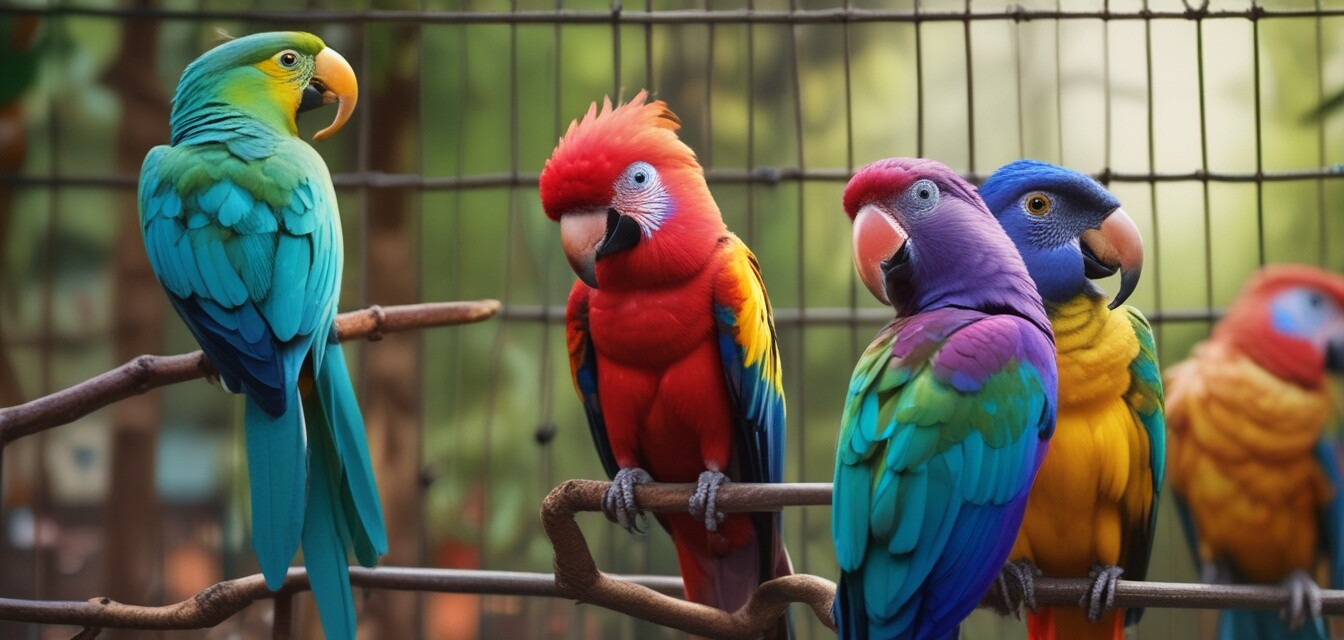
Meeting the Needs of Exotic Cage Birds in 2025
Key Takeaways
- Exotic cage birds require specialized care in housing, diet, and mental stimulation.
- Modern practices emphasize enrichment and socialization to improve well-being.
- Sustainable and eco-friendly products are becoming increasingly popular for bird care.
- Understanding the needs of specific species is crucial for optimal care.
As we move deeper into 2025, the conversation around caring for exotic cage birds continues to evolve. Bird enthusiasts and caretakers are beginning to recognize that meeting the needs of these unique creatures goes beyond basic care; it involves an understanding of their specific housing requirements, dietary preferences, and the importance of mental and physical stimulation. In this article, we will explore how these needs are being met and what trends are shaping the future of exotic bird care.
Understanding the Housing Needs
Housing is foundational to the well-being of exotic cage birds. A proper environment not only accommodates their physical needs but also nurtures their mental and emotional health. Below, we will look at the various aspects of housing that are critical for exotic cage birds.
| Housing Aspect | Description |
|---|---|
| Size | Spacious enough for flying and moving comfortably. |
| Material | Non-toxic, sturdy materials should be used to ensure safety. |
| Ventilation | Good airflow is essential for health and comfort. |
| Environmental Enrichment | Include toys, perches, and climbing structures for physical activity. |
Trends in Cage Design
As the needs of exotic birds are becoming clearer, cage designs are adapting. Here are some trends that are shaping the market:
- Modular cages that can be expanded as needed.
- Cages that mimic natural habitats with integrated features like plants.
- Customizable options allowing owners to create a personalized setting.
Nutritional Requirements of Exotic Birds
Understanding the dietary needs of diverse species is crucial for any bird owner. The trend towards a more holistic understanding of bird diets encompasses a range of factors:
| Dietary Component | Importance |
|---|---|
| Fruits and Vegetables | Essential vitamins and minerals for overall health. |
| Seeds and Grains | Main source of energy and nutrition. |
| Supplements | Balanced diet may require vitamin and mineral supplements. |
Innovations in Bird Food
The emergence of specialized bird foods that cater to the unique needs of exotic birds is proving to be a game-changer. Recent developments in the bird food sector include:
- Organic and non-GMO products that align with health-conscious trends.
- Custom blends designed for specific species.
- Subscription-based services for regular deliveries of fresh foods.
Stimulation and Enrichment
Cage birds are naturally social and curious creatures that require mental stimulation to thrive. Here are common practices and products used to ensure that exotic birds remain engaged:
- Interactive toys that challenge their intelligence.
- Social activities that encourage group play or interaction with humans.
- Environmentally enriched spaces that change periodically to keep them intrigued.
Importance of Socialization
Socialization is paramount for exotic cage birds. Many species thrive in flocks, so recognizing their need for companionship—whether from other birds or humans—is essential. This has led to a rise in community-driven resources such as:
- Bird clubs and online forums.
- Bird daycare services for owners who are often away.
- Workshops on building social skills in pet birds.
The Move Towards Sustainability
Environmental awareness is shaping every aspect of bird care, from sourcing materials to promoting sustainable practices. This trend includes:
- Use of eco-friendly products, like biodegradable cleaning supplies and toys made from natural resources.
- Advocacy for sustainable sourcing of bird food ingredients.
- Innovative designs that reduce waste, such as reusable cage liners.
Pros
- Enhanced awareness of birds' needs leads to better care practices.
- Availability of specialized products caters to specific exotic bird requirements.
- Improved bird welfare through environmental enrichment and socialization.
Cons
- Specialized products may come at a higher cost.
- Not all bird owners are aware or educated on these best practices.
- Inconsistent availability of quality foods and accessories in different regions.
Conclusion
The world of exotic cage birds is progressing in exciting and meaningful ways. Understanding their unique housing, dietary, and stimulation needs is no longer optional but a necessity for caretakers. As we navigate through 2025, it's clear that the needs of these extraordinary creatures will continue to shape our practices and the market, leading towards a richer, more informed, and more compassionate approach to bird care.
For those interested in enhancing their knowledge on exotic birds, explore our other categories such as bird cages, bird care & health, and buying guides for cage birds to find resources that can further assist in developing a deeper understanding of these fascinating creatures.